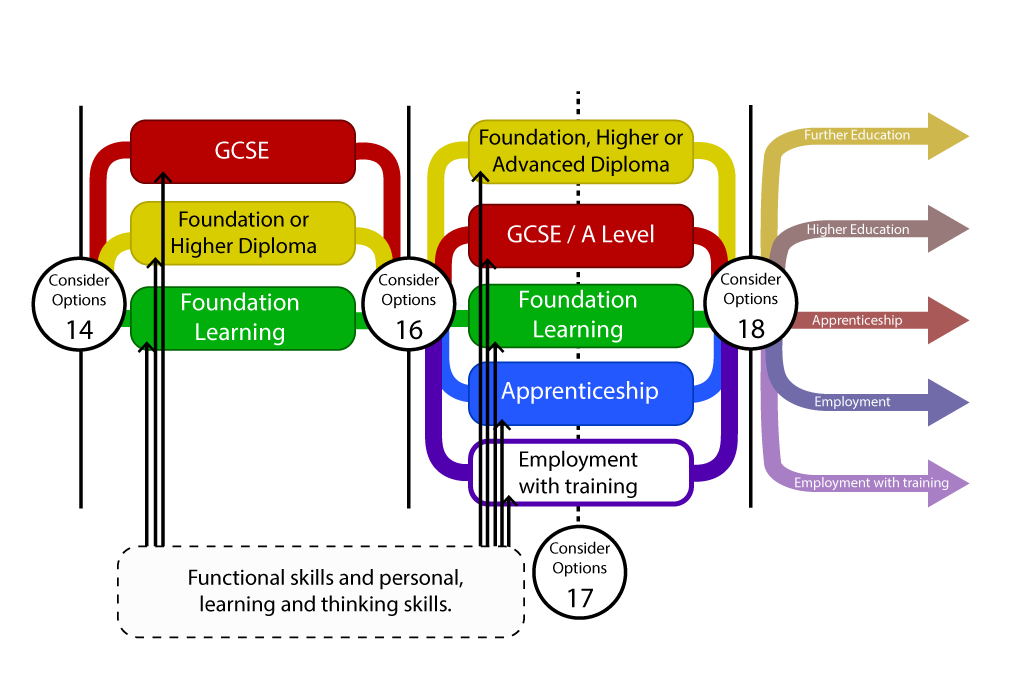Since the 14-19 reform act, there has been a great deal of change in the curriculum in the UK. Now, our education system provides our youth with training in skills that are going to be useful in life and help them build up knowledge to help them succeed. It was designed to help encourage more and more young people to continue into higher education. However, not every young individual wants to go to university, so the 14-19 reforms provide alternative further education paths for these individuals.
These changes see that more functional skills are replacing key skills and will be embedded in the 14-19 pathways. These functional skills are being integrated with English, Maths and ICT, to provide 14-19 year-olds with training to improve their communication, problem solving and time management skills. Plus, teaching them how to work together in a team. These skills are much more transferable to world out there, and will help them prepare for employment.
14-19 Pathways
Thanks to the government’s reform of education for 14-19 year-olds, everyone must stay in education until 18 years of age. However, there will be several options available to choose from. These pathways begin at age 14, and while most children will continue on the standard path of undergoing GCSEs, there will be other paths available. This diagram depicts the 14-19 pathway quite well:

Functional Skills Qualification
They are available across five levels and are applied skills in Maths, English and ICT. They are geared more towards problem-solving and dealing with ‘real-life situations’. These were introduced to help learners progress through GCSE, but are available all over the country, including for adults.
Who can help?
Most schools will continue as normal, and teaching functional skills will be the responsibility of the usual teachers. However, it works best if functional skills practitioners are broken down into specialist areas:
– Leaders/Managers: These individuals will need to be completely familiar with the functional skills material and be able to deliver across their consortium. They will need to pass on their knowledge onto others and ensure they are comfortable teaching the 14-19 year-olds.
– Functional Skills Practitioners: These will be the core subject teachers, but they will have to understand how to integrate the functional skills into the teaching of English, Maths and ICT.
– Other practitioners: Even if a teacher is not teaching one of the core subjects, they still need to be aware of the functional skills teaching. They should be able to answer any questions on the subject and guide young people about the importance of functional skills.










Hello
Just want to enquire about functional skills. As mentioned above that 14-19 years old can enrol on this course while they still go to school, do you run the classes in the evening.